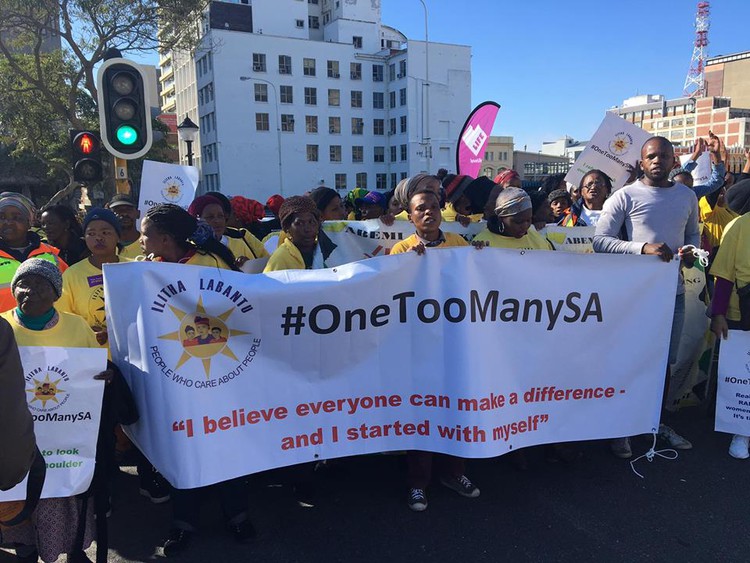
Thousands have signed the pledge to end abuse of women and children. Photo: supplied
10 August 2017
Since its launch in early May, an estimated 11,000 people have signed the #OneTooManySA pledge, calling for an end to abuse against women and children.
The organisation Ilitha Labantu and its partnering organisations have been making door-to-door visits in townships and communities on the Cape Flats to raise awareness about the campaign. The pledges will be handed over to the South African Police Service and the Department of Justice.
“We’ve collected the signatures of many different people, old and young, who are tired of what they are seeing every day. Our own data shows that perpetrators are arrested this week and four days later, they are back on the streets doing the same thing. People are living in perpetual fear. We want a sense of accountability from the Justice Department,” said Siyabulela Monakali, Ilitha Labantu spokesperson.
The pledge reads: “I pledge to stop the abduction, rape and killing of women and girls in our communities. Together we demand bold political leadership to prevent rape and brutal killing, to protect civilians and rape survivors, and call for justice for all including effective prosecution of those responsible.”
On 14 June, nearly 600 activists and survivors of abuse held a peaceful march to the Western Cape Legislature and Parliament to demand justice for the victims of crimes against women and children.
“We used the recent increase in media interest in these cases to start conversations in our communities about abuse. Apart from the online pledges, we printed out the pledge sheets and did motorcades through different townships and communities on the Cape Flats where more people signed,” said Monakali.
He said over 7,000 online pledges and over 3,000 more had been collected after their door-to-door visits in Elsies River, Khayelitsha, Philippi, Gugulethu, Langa and Nyanga. People could still sign the pledge on the website, said Monakali.
A visit to Samora Machel had revealed the community’s “dire need” for counselling and advice services. “A lot of people were asking us where they can go for help because of the lack of services available in that area. The topic of abuse has become normalised in areas like this to a point where people shrug it off,” he said.
Monakali said police stations had been invited to get involved in the campaign to bolster the police relationship with communities.
“People generally have a very negative view of the police station. Even if it’s just to certify documents, you have to wait. Imagine if you’ve just been through something as traumatic as abuse and then have to wait in an area with everyone else. Once someone has had a negative experience at a police station, the likelihood of going back there for help is very slim,” he said. “That’s why we don’t just want the police to arrest, we want them to address how they deal with survivors of abuse and rape.”